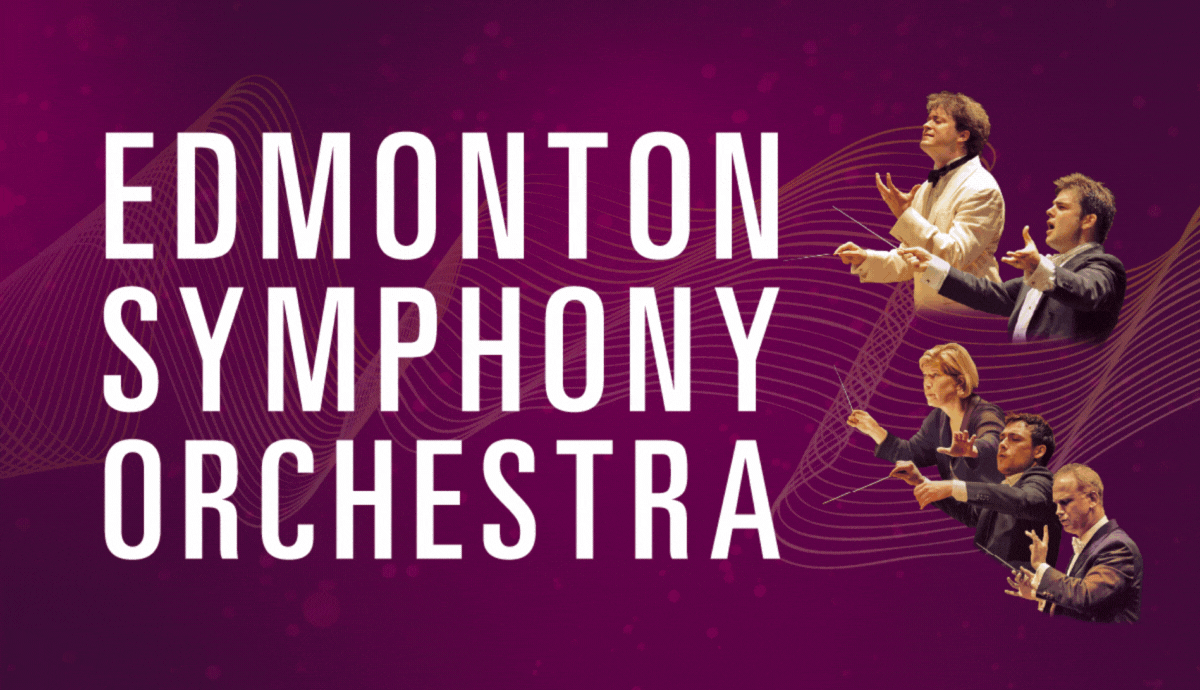Elgar’s Ultimate Musical Inside Joke
February 9, 2023

By D.T. Baker, Musicologist
Edward Elgar’s “Enigma” Variations is the ultimate musical inside joke – or jokes, actually. The work, which premiered June 19, 1899, in London, is vitally important to the history of western art music in England – something Elgar himself would never have anticipated. What began as an afternoon noodling at the piano became a work that heralded a new awakening of music produced by British composers, which had slumbered since the death of Henry Purcell 204 years earlier.
The Variations on an Original Theme, Op. 39 “Enigma” is popular now the world over. The Edmonton Symphony Orchestra presents the work relatively regularly – a testament to its popularity, but also to its appeal for a wide variety of conductors. Its next performance will take place February 24 – 26, with Brett Mitchell conducting.
The very concept of the work is unique. As the story has come down to us, Elgar – who at the time was still struggling to establish himself as a composer – was encouraged by his wife, Alice. Upon hearing a particular tune at which Elgar was plunking away, she commented that she quite liked it. Yes, Elgar agreed, maybe something could be made from it.
Soon after, Elgar wrote to his close friend August Jaeger, telling him that the tune he had come up with was to become a set of variations for orchestra. But then he outlined his singular idea to Jaeger. “The Variations have amused me because I’ve labelled ‘em with the nicknames of my particular friends – you are Nimrod. That is to say I’ve written the variations each one to represent the mood of the ‘party’…”
There were two other important stipulations for Elgar. The first is that not only would each variation be a bit of a fond caricature of each friend, but he liked to imagine that each would be composed as if the friend had composed it him or herself, “if they were asses enough to compose,” he added self-deprecatingly.
But the other stipulation was that the average concert-goer wouldn’t have to have close knowledge – or any knowledge at all – of the figures portrayed in the variations. “… amusing to those behind the scenes and won’t affect the hearer who ‘nose nuffin’,” he added to Jaeger.
Elgar’s publisher Novello was not enthusiastic about the work. At this time, Elgar regarded himself – with some accuracy – as still just a “regional” composer. He had not taken on the London audience with great success to this point. So a major break for him came when one of Europe’ pre-eminent conductors, Hans Richter – who had just been announced as the incoming conductor for Manchester’s Hallé Orchestra – would conduct the work’s premiere performance, in London.
From its first performances, the “Enigma” Variations have been an unreserved success. Even critics a little put out at not being “in on the joke” of the affectionate portraits admitted the success of the music as absolute.
All of this takes care of the “variations” part of the work’s title. The “enigma” part is a little more complicated – adding yet another layer of uniqueness and inside joked-ness to the proceedings. In the program note for the work’s premiere, Elgar himself wrote: “The enigma I will not explain – its ‘dark saying’ must be left unguessed, and I warn you that the apparent connection between the Variations and the Theme is often of the slightest texture; further, through and over the whole set another and larger theme ‘goes,’ but is not played … So the principal Theme never appears.”
Elgar was right about one thing. This secondary, background “theme” is never played. But he was dead wrong about insisting that people not guess at it – that’s all they’ve done since the work was first played, and it only intensified when Elgar went to his grave taking his secret with him. Speculators have speculated, experts have opined, and likely Ouija boards have been consulted to identify this final enigma. The very word “theme” can have a number of meanings, and some of them crucially have nothing to do with the musical idea of a theme. Elgar certainly knew that, and he kept this last joke as inside as it gets – perhaps he was the only one who ever actually knew.
Fortunately, all of this takes nothing away from one’s ability to simply enjoy this radiantly warm, human piece, born of friendship and good humour. Guess all you want to about the final “enigma” – you’ll be in good company – but revel in a work that enjoyed such a success that it truly did help bring British music back to the world stage, and pave the way for the composers of the next generation – particularly Vaughan Williams and Britten – to keep alight the torch Elgar lit as the 20th century began.
Elgar's Loves: Enigma Variations

February 23 & 25 ● 7:30 PM
Find Tickets



